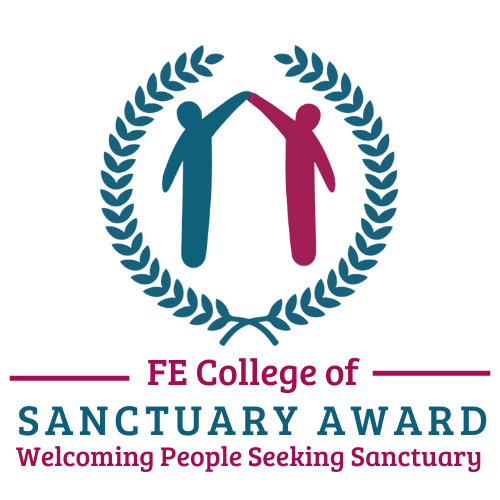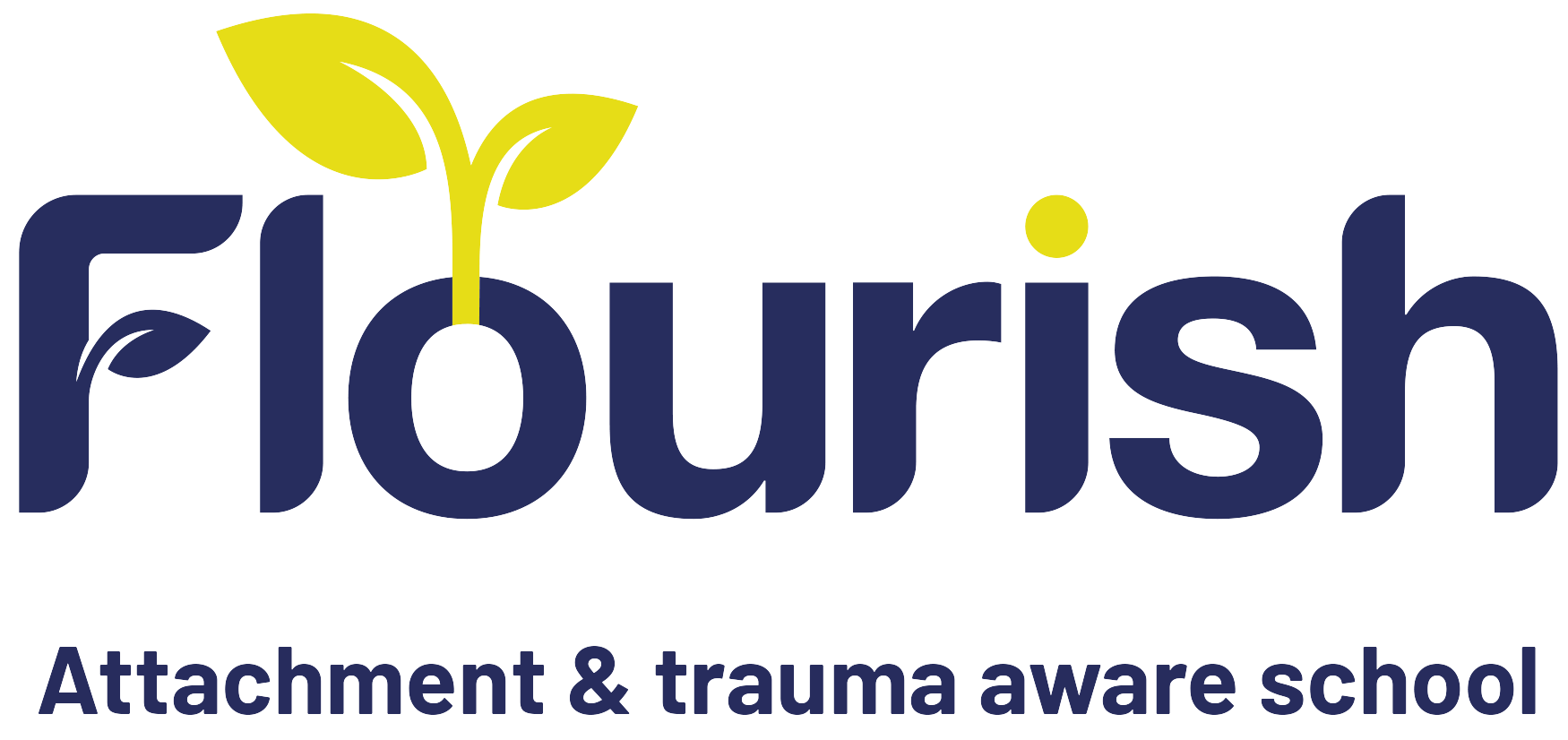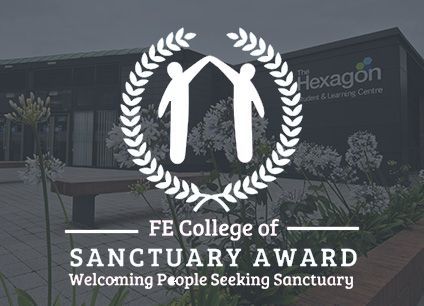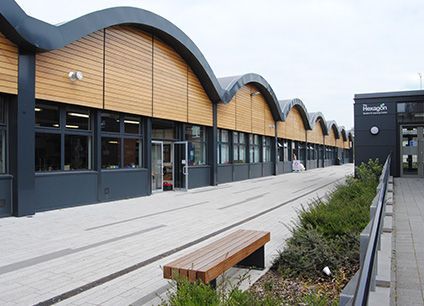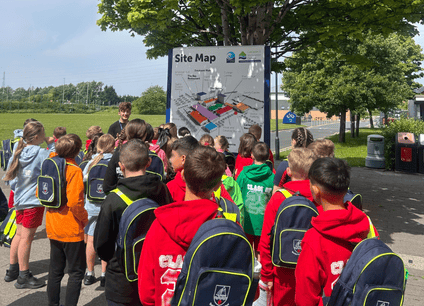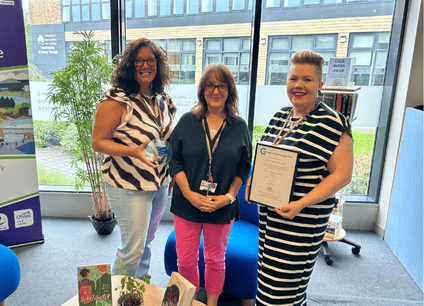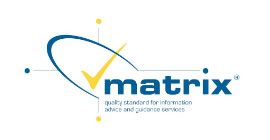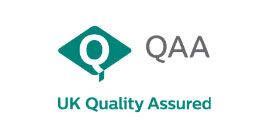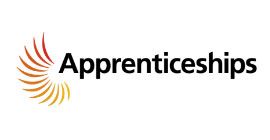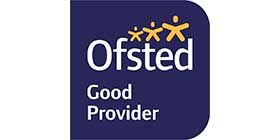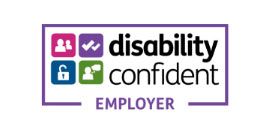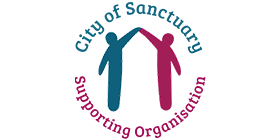WORKBASED Diploma only Courses
At Lancaster & Morecambe College those already in employment can benefit from our Diploma course route to gaining qualifications. Our Diploma courses are suitable for those already employed in a suitable role and wishing to upskill in their current job.
Funding is available to support these courses, and you may be required to already have a Maths and/or English qualification, or be prepared to work towards gaining the qualifications, so just complete the form below to find out more and a member of our team will be in contact soon.
To enrol onto one of these Diploma Courses call 01524 521483 for further information
Level 2 Diploma
Adult Care Worker Level 2 Diploma
You must be employed in a care role in order to complete this qualification.
Typical job roles include:
Care Assistant, Care Worker, Support Worker, Personal Assistant, Relief Team Worker, Support Worker - Supported Living, Key Worker in Residential Settings, Key Worker in Domiciliary Services, Key Worker in Day Services, Home Care Support Worker, Substance Misuse Worker, Learning Disability Support Worker, Mental Health Support Worker, Mental Health Outreach Worker and Re-Enablement Worker.
Overview of the role
Adult Care Workers are frontline staff who work in a care role to make a positive difference to someone’s life when they are faced with physical, practical, social, emotional or intellectual challenges. An adult care worker works with people and is passionate about supporting and enabling people to live a more independent and fulfilling life. This is a rewarding and worthwhile job that provides excellent career opportunities.
These are the personal attributes and behaviours expected of all Adult Care Workers when carrying out their roles, these can include:
- Caring – You are required to be caring consistently and enough about individuals to make a positive difference to their lives
- Compassionate – You will deliver care and support with kindness, consideration, dignity and respect
- Courageous – you will be required to do the right thing for people and speak up if the individual you support is at risk
- Communication – Good communication is central to successful caring relationships and effective team working
- Competencey – Are you able to apply knowledge and skills to provide high quality care and support
- Commitment – to improving the experience of people who need care and support ensuring it is person centred
On programme – Typically 14 - 18 months.
You are required to complete a portfolio of evidence and demonstrate your working practice minimum twice whilst on the programme. Once certificate gained you are then ready to enter the Gateway process for the end point assessment.
Entry Requirements
Achieved 5 GCSE’s including Maths & English at grade C or above or 4/5 (new grading), will accept key skills or Functional Skills Level 1.
A Level 2 Care Certificate and current DBS.
Technical Occupational Entry for the Early Years Practitioner – NCFE CACHE Level 2 Diploma
You must be employed in a childcare role in order to complete this qualification.
Typical job roles include:
Nursery Assistant, Early Years Practitioner, Nursery Practitioner, Nursery Nurse, Assistant Childminder, Nanny and Early Years Worker
Overview of the role:
This role can be found in a range of private and public settings including; full day care, children’s centres, pre-schools, reception classes, playgroups, nursery schools, home based provision, hospitals, social care settings, out of school environments and local authority provision to deliver the Technical Occupational Entry for the Early Years Practitioner – NCFE CACHE Level 2 Diploma requirements set by government for the learning, development and care of children from birth to 5 in both indoor and outdoor environments.
The purpose of the role is to work and interact directly with children on a day to day basis supporting the planning of and delivery of activities, purposeful play opportunities and educational programmes within the ethos of the setting. Within your daily work you will interact with parents, children, colleagues and wider multi agency professionals and partners such as health visitors, social workers and speech and language therapists.
Duties of an Early Years Practitioner
- Support the observation and assessment of each child and contribute to their learning experiences
- Assist with the care needs of the individual child such as teeth, skin, hair, feeding, changing nappies and toileting under direction of a more senior member of the team.
- Responsible for ensuring that they recognise when a child is in danger and/or at risk of serious harm or abuse and contributing to the health and safety of the children, staff and others on the premises
- Responsible for supporting child initiated and adult led activities based around the needs and interests of each individual child
- Supporting children’s learning through planned, purposeful play opportunities and educational programmes and working as part of a team to ensure each child feels safe and secure
On programme - 12 months and 1 day -14 months complete portfolio.
Progression routes following completion
- Early Years Educator – Level 3 Lancaster & Morecambe College
- Teaching Assistant – Level 3 Lancaster & Morecambe College
- Assessor/Coach - Level 4
- Learning and Teacher Skills – Level 5
- Teacher – Level 6
Support Teaching and Learning Level 2 Certificate
Course overview
The Level 2 Certificate in Supporting Teaching and Learning has been designed to provide learners with an understanding of the knowledge and skills needed when working directly with children and young people in school or college environments. It covers a wide range of areas including children and young people’s development, supporting children and young people’s positive behaviour and communication and professional relationships.
It’s aimed at learners working in roles that support pupils’ learning in primary, secondary, or special schools, as well as colleges.
Who is it suitable for?
This qualification is aimed at learners in volunteering / employed in support roles within schools and colleges.
Entry requirements
The minimum age for a learner taking this qualification is 16 years old. English GCSE C/4 or above or equivalent Level 2 Functional Skills. Math’s GCSE D/3 or above or Level 1 Functional Skill
How is this qualification structured? How is it assessed?
This qualification is internally assessed. Creation of a portfolio of evidence covering 11 units plus practical workplace observations.
How long will it take to complete this qualification?
The Certificate can usually be completed in a year.
Do you need to be working to take this qualification?
Learners will need to be employed or volunteering for a minimum of 12 hours for the duration of the course in a learning environment (school or college) as they need to show competence in both skills and knowledge.
Funding for our qualifications
There maybe a cost for this course.
Progression Opportunities
Level 3 - Teaching Assistant Apprenticeship// Level 3 Teaching Assistant Diploma only.
Level 3 diploma
Lead Adult Care Worker Level 3 Diploma
You must be employed in a care role in order to complete this qualification.
Typical job roles include:
Care Officer, Care Supervisor, Senior Care Worker, Supervising Care Worker, Senior Support Worker, Relief Team Leader, Social Work Assistant, Social Services Officer, Outreach Development Worker, Community Support Worker, Community Outreach Worker, Community Development Worker, Family Support Worker or Personal Assistant. These could all specialise in a variety of areas such as learning disability, mental health, drug and alcohol misuse, homecare, dementia and end-of-life care.
Overview of the role
Lead Adult Care Workers are the frontline staff who help adults with care and support needs to achieve their personal goals and live as independently and safely as possible, enabling them to have control and choice in their lives. In addition, Lead Adult Care Workers have responsibility for providing supervision, frontline leadership, guidance and direction for others, or working autonomously, exercising judgement and accountability this means leading and supporting others to comply with expected standards and behaviours. Lead Adult Care Workers will in some circumstances have delegated responsibility for the standard of care provided and may supervise the work of other care workers.
These are the personal attributes and behaviours expected of all Adult Care Workers carrying out their roles
- Caring – You are required to be caring consistently and enough about individuals to make a positive difference to their lives
- Compassionate – You will deliver care and support with kindness, consideration, dignity and respect
- Courageous – you will be required to do the right thing for people and speak up if the individual you support is at risk
- Communication – Good communication is central to successful caring relationships and effective team working
- Competencey – Are you able to apply knowledge and skills to provide high quality care and support
- Commitment – to improving the experience of people who need care and support ensuring it is person centred
On programme – Typically 14 - 18 months.
You are required to complete a portfolio of evidence and demonstrate your working practice minimum twice whilst on programme.
Entry Requirements
A Level 2 Care Certificate and current DBS.
Technical Occupational Entry for the Early Years Workforce- Level 3 Diploma (Free Courses For Jobs)
You must be employed in a childcare role in order to complete this qualification.
Diploma only
Typical job roles include:
Early Years Educator, Nursery Nurse, Childminder.
Overview of the role
Early Years Educator are highly trained professionals who play a key role in ensuring that young children learn and develop well and are kept healthy and safe.
Settings include full day care, children’s centres, pre-schools, reception classes and childminders.
You may be working on your own or supervising others to deliver the Early Years Foundation Stage (EYFS) requirements set by the Government for the learning, development and care of children from birth to 5 years old.
Duties of an Early Years Educator
- Plan and supervise child initiated and adult led activities which are based around the needs of each individual child.
- Support children to develop numeracy and language skills through games and play.
- You will have key person responsibility to help ensure each child feels safe and secure.
- Observe each child and shape their learning experience to reflect their own observations.
- Meet the care needs of the individual child such as feeding, changing nappies and administration of medicine.
- Work in partnership with other colleagues, parents and/or carers or other professionals to meet the individual needs of each child.
With additional experience, an Early Years Educator can become a manager of an early years setting.
On programme – Minimum 12 months +1 days/ Maximium18 months to complete portfolio.
Entry Requirements
Functional Skills Level 2 for both Maths & English or equivalent GCSE 4/C and above.
Please note to be counted in ratio as a full level 3 qualified practitioner you must have obtained English and Level 3 Paediatric First Aid (RQF) or Level 3 Emergency Paediatric First Aid (RQF) to meet EYFS requirements.
Possible progression routes following completion:
- Teaching Assistant – Level 3 - Lancaster & Morecambe College
- Assessor/Coach - Level 3- Lancaster & Morecambe College
- Learning and Teacher Skills – Level 5
- Teacher – Level 6
- Academic Professional – Level 7
Teaching Assistant Level 3 Diploma
You must be employed in a school setting in order to complete this qualification.
Typical job roles include:
Teaching Assistant, Learning Support Assistant, Specialist Support Assistant and Support for Specialist Curriculum Areas.
Overview of the role
Teaching Assistants work in Primary, Special and Secondary education across all age ranges encompassing special educational needs and emotional vulnerabilities. The primary role of the Teaching Assistant is to support the class teacher to enhance pupils’ learning either in groups or individually, ensuring pupils understand the work set, know their learning objectives and stay on task in order to make progress. Promoting self-belief, social inclusion and a high self-esteem play an integral part to pupils’ well-being; ensuring pupils thrive in a positive, nurturing, safe environment.
This job role is an active role supporting the learners to access the curriculum. You will be a good role model, acting with honesty and integrity, take part in team meetings; contribute to planning and class activities. Promoting Fundamental British Values through spiritual, moral, social and cultural development and positive behaviours are crucial in contributing to improved pupil progress and development.
On programme - typically 14- 16 months
Entry Requirements
Achieved 5 GCSEs including Maths & English at Grade C or above or 4/5 (new grading), will accept qualifications and experience, including relevant Level 2 qualification i.e. Functional Skills Level 2.
Progression routes
- Advanced Practitioner in Schools and Colleges Level 4
Residential Childcare Level 3
Overview of the role
This course is designed to help you develop the skills, knowledge, and behaviours in the Residential Childcare industry. The aim of the course is to support learners in taking their first steps into this specialist world, and build upon the skills already developed with employers.
Residential Childcare Level 3 focusses on safeguarding, behaviour, and the legislation that guides those who work with vulnerable children and young people.
The course is delivered through a blended approach with a mix of face to face and online learning to develop the core knowledge, skills and behaviours needed to be successful in your career.
The course involves industry-relevant learning, practical experience, expert faculty and a supportive environment.
On programme - typically 15-18 months
Entry Requirements
The minimum age requirement is 18 years and all learners must undetake the Disclosure and Barring Service process and provide the result. Any other entry criteria will be applied at the discretion of the course manager.
Progression routes
Upon completion of this course, learners are able to progress into job roles within the Residential Childcare sector. With experience, learners may take on more responsibility as a senior support worker or manager, or train as a social worker.
Level 5 diploma
Leadership & Management for Residential Childcare Level 5 Diploma
Overview of the role
Leadership & Management for Residential Childcare Level 5 focuses on industry-relevant learning, practical experiences, expert guidance and all in a supportive environment. Topics covered include a dive into the world of residential childcare with a curriculum tailored to real-world scenarios, from child development to safeguarding, it's all covered.
This course is tailored for leaders and managers who are working or aspiring to work in managergial roles within residential childcare in England.
Other areas covered include leading progress on the well-being, safety and development of children and young children, leading supprot for vulnerable individuals, managing and leading teams in residential care and developing and leading the home forward approach.
The course is delivered through a blended approach with a mix of face to face and online learning to develop the core knowledge, skills and behaviours needed to be successful in your career.
The course involves industry-relevant learning, practical experience, expert faculty and a supportive environment.
On programme - typically 15 - 18 months
Entry Requirements
To complete this course, you will need to be employed by an Ofsted registered Residential Childcare Provider and be in a leadership role (Deputy Manager or Registered Manager). The minimum age requirement is 18 years and all learners must undetake the Disclosure and Barring Service process and provide the result. Any other entry criteria will be applied at the discretion of the course manager.
Progression routes
Upon completion of this course, you will receive a Level 5 Diploma in Leadership and Management for Residential Childcare.
Level 3 Supporting Progression in the Adult Care Sector
We are pleased to announce a new Supporting Progression in the Adult Care Sector programme for those already working in a care role and wishing to update their skills. This programme is fully funded by the UK Shared Prosperity Fund (UKSPF), which is part of a new government initiative. As a college we will be supporting local businesses, entrepreneurs, volunteers and our local community with training and development in line with the local skills demand. The programme is delivered at Lancaster & Morecambe College and runs for 8 months.
Adult Care Workers need to have the right values and behaviours, developing competences and skills to provide high quality compassionate care and support. Whilst on the programme you will need to be trained and competent in pressure area care, medication administration, physiological measurements and infection prevention and control.
The programme consists of the following units, which require the completion of coursework and observations in the workplace:. Please see in flyer to the right or download a copy here.
As a fully-funded course through UKSPF, this course is delivered at Lancaster & Morecambe College in the Employer Hub and also at your own workplace.
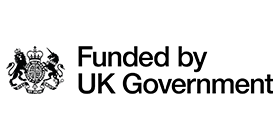

Seen a course that you're interested in?
If you require some more information simply fill out the Diploma Course Enquiry Form below and a member of our Employer Engagement team will be in touch.
LMC In the Spotlight
